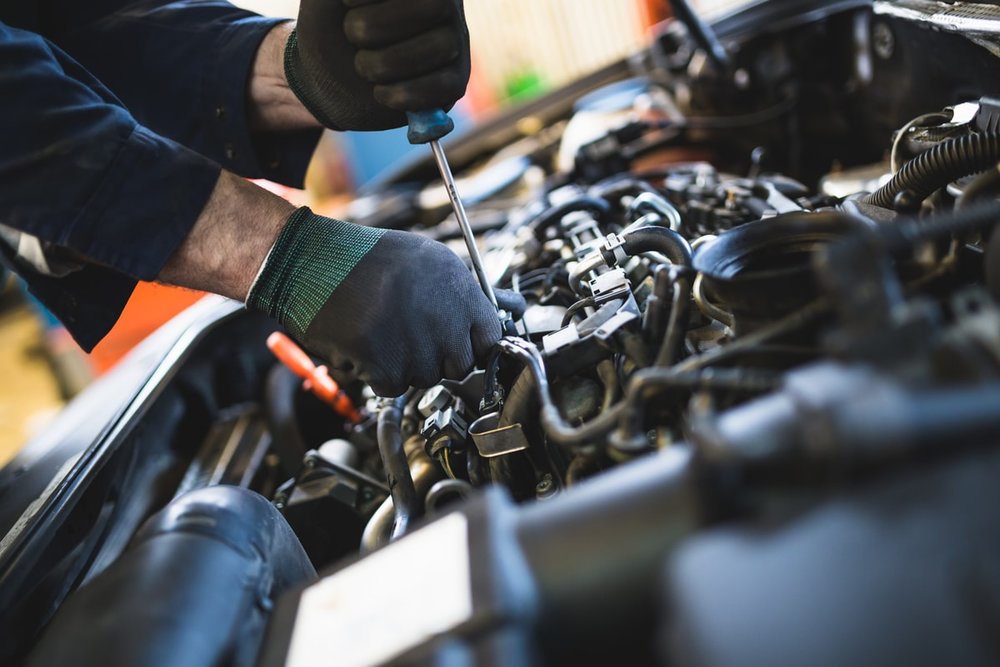Maintaining optimal Auto Services Fort Worth TX is not only beneficial for your wallet but also for the environment.

Fortunately, there are numerous steps you can take to improve your car’s fuel efficiency, from simple changes in driving habits to regular maintenance tasks. In this comprehensive guide, we’ll explore various strategies to help you get the most out of every gallon of fuel your car consumes.
1. Keep Your Vehicle Well-Maintained
Regular maintenance is essential for maximizing fuel efficiency. Here are some maintenance tasks to prioritize:
- Check and Replace Air Filters: A clogged or dirty air filter restricts airflow to the engine, reducing fuel efficiency. Replace your air filter according to the manufacturer’s recommendations.
- Maintain Proper Tire Pressure: Under-inflated tires increase rolling resistance, making your engine work harder and consuming more fuel. Check your tire pressure regularly and inflate them to the recommended PSI (pounds per square inch).
- Tune-Up Your Engine: Regular tune-ups, including spark plug replacement and ignition system checks, can improve engine performance and fuel efficiency.
- Use the Right Motor Oil: Using the manufacturer-recommended motor oil can reduce friction and improve engine efficiency. Look for oil labeled “energy-conserving” for better fuel economy.
2. Practice Efficient Driving Habits
Your driving habits play a significant role in fuel consumption. Adopting the following habits can help improve fuel efficiency:
- Drive Smoothly: Avoid aggressive driving behaviors such as rapid acceleration, hard braking, and excessive speeding. Accelerate gradually and anticipate stops to minimize fuel consumption.
- Maintain a Consistent Speed: Driving at a steady speed on the highway can improve fuel efficiency compared to frequent acceleration and deceleration. Use cruise control when appropriate to help maintain a constant speed.
- Reduce Idling: Idling consumes fuel unnecessarily. Avoid extended idling periods by turning off your engine when parked or waiting for an extended period.
- Plan Efficient Routes: Choose routes with less traffic congestion and fewer stops to minimize fuel consumption. Use navigation apps to find the most efficient routes and avoid unnecessary detours.
3. Reduce Aerodynamic Drag
Reducing aerodynamic drag can improve fuel efficiency, especially at higher speeds. Consider the following tips:
- Remove Roof Racks and Cargo Carriers: Roof-mounted accessories increase aerodynamic drag and reduce fuel efficiency, especially at highway speeds. Remove them when not in use to improve aerodynamics.
- Close Windows at High Speeds: Driving with windows open at high speeds increases drag and reduces fuel efficiency. Use your vehicle’s ventilation system or air conditioning instead.
- Keep Your Vehicle Clean: A clean exterior reduces drag and improves aerodynamics. Regularly wash and wax your vehicle to maintain optimal aerodynamic efficiency.
4. Lighten Your Load
Reducing excess weight in your vehicle can improve fuel efficiency. Here are some tips to lighten your load:
- Remove Excess Cargo: Remove unnecessary items from your vehicle, especially heavy cargo that adds unnecessary weight and increases fuel consumption.
- Empty Your Trunk: Avoid storing heavy items in your trunk unless necessary. Every additional pound of weight reduces fuel efficiency, especially in smaller vehicles.
- Use Lightweight Materials: If possible, opt for lightweight materials when carrying cargo or transporting items. For example, use plastic storage bins instead of heavy metal containers.
5. Use Fuel-Efficient Driving Aids
Modern vehicles often come equipped with fuel-saving technologies and driving aids that can help improve fuel efficiency:
- Eco Mode: Many newer vehicles feature an “Eco” mode that adjusts engine and transmission settings for improved fuel efficiency. Activate Eco mode when driving in traffic or on highways to save fuel.
- Hybrid and Electric Vehicles: Consider switching to a hybrid or electric vehicle for even greater fuel savings. These vehicles use advanced technologies such as regenerative braking and electric propulsion to maximize efficiency.
Conclusion:
Improving your car’s fuel efficiency is a combination of adopting efficient driving habits, maintaining your vehicle properly, and making smart choices about vehicle accessories and cargo. By implementing the strategies outlined in this guide, you can reduce fuel consumption, save money on fuel costs, and minimize your environmental impact.
Circle S Auto Service
12195 N Saginaw Blvd #120, Fort Worth, TX 76179, United States
1-817-439-8020
